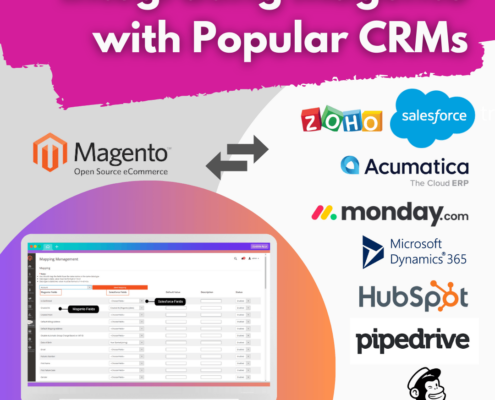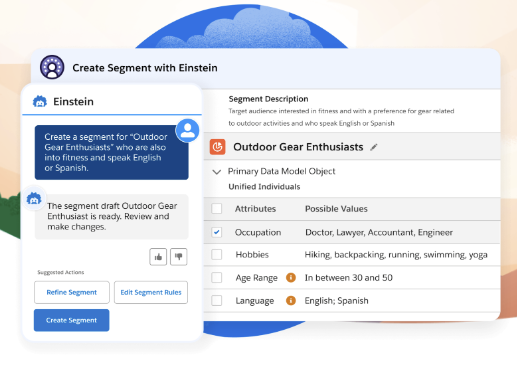 https://www.digideo.co/wp-content/uploads/2025/01/Top-trends-2025-Pinterest-Predicts-can-grow-your-business-2025-01-15-15-21-40.png
842
1663
Urszula Urban
https://www.digideo.co/wp-content/uploads/2023/06/digideo2019-340-1.jpg
Urszula Urban2025-02-28 17:55:512025-02-28 18:00:41Top Trends in ecommerce 2025
https://www.digideo.co/wp-content/uploads/2025/01/Top-trends-2025-Pinterest-Predicts-can-grow-your-business-2025-01-15-15-21-40.png
842
1663
Urszula Urban
https://www.digideo.co/wp-content/uploads/2023/06/digideo2019-340-1.jpg
Urszula Urban2025-02-28 17:55:512025-02-28 18:00:41Top Trends in ecommerce 2025In 2024, customer relationship management (CRM) automation solutions have evolved beyond data collection tools to become robust systems that improve customer experiences and sales performance. Businesses leverage these advanced tools to streamline operations, personalize customer interactions, and nurture leads more efficiently. Let’s explore the critical CRM automation solutions that enhance customer relationships and drive sales growth in 2024.
1. AI-Powered Chatbots and Virtual Assistants
Artificial intelligence (AI)- powered chatbots and virtual assistants are becoming integral to CRM systems, automating customer support and sales interactions in real time. These AI solutions can provide instant responses, resolve common issues, and guide customers through the sales funnel without human intervention. In fact, according to a recent report, AI-enabled CRM systems are expected to generate $1.1 trillion in additional sales revenue globally by 2025.
For example, a chatbot integrated with a CRM can track a customer’s browsing history, preferences, and past purchases. By analyzing this data, the bot can recommend relevant products, offer personalized discounts, and answer questions 24/7, improving customer satisfaction and increasing the likelihood of a sale.
2. Marketing Automation for Personalized Campaigns
CRM systems incorporate advanced marketing automation tools that allow businesses to segment their customer base and send personalized messages at scale. With features like email automation, lead scoring, and dynamic content personalization, companies can now deliver the right message to the right customer at the optimal time.
In 2024, these automation systems are increasingly integrated with predictive analytics. This enables CRM platforms to anticipate customer behaviors and preferences based on historical data. For instance, Salesforce’s AI-driven marketing cloud helps companies create personalized campaigns that adapt to changing customer behaviors in real-time. This not only increases engagement but also allows marketers close deals faster.
3. Customer Data Platforms (CDPs) for Enhanced Personalization
CRM systems in 2024 are often paired with Customer Data Platforms (CDPs) to unify and analyze customer data from various channels. These platforms provide a comprehensive 360-degree view of each customer by consolidating data from social media, websites, mobile apps, and email.
By integrating CDPs with CRM systems, businesses can offer hyper-personalized customer experiences. For instance, a CDP might reveal a customer’s browsing history and purchase intent, allowing the CRM to trigger personalized email offers or suggest relevant products. 79% of customers are more likely to make a purchase from a company that offers personalized experiences, according to recent studies.
4. Sales Automation with AI-Based Forecasting
In 2024, automation tools designed for sales teams have become increasingly sophisticated. AI-based forecasting tools are embedded into CRM platforms to help sales teams predict which leads are most likely to convert based on factors like customer behavior, engagement history, and market trends. These predictive analytics tools improve decision-making and prioritize high-value leads, enabling sales teams to focus on the most promising opportunities.
Furthermore, sales automation tools can streamline tasks like follow-ups, meeting scheduling, and lead nurturing, saving time and ensuring no leads fall through the cracks. Platforms like HubSpot’s sales automation tools have led this space, helping companies drive efficiency in sales processes while maintaining a personalized touch with their prospects.
5. Omnichannel Integration for Seamless Customer Journeys
Omnichannel CRM automation is a must-have in 2024. Customers today engage with businesses across various channels, from social media to in-store visits, expecting a seamless experience. CRM solutions are integrating omnichannel communication tools that unify interactions across all touchpoints, ensuring consistency in messaging and service quality.
For example, a customer who initiates a conversation on social media can continue the same conversation over email or live chat without needing to repeat themselves. This level of integration ensures a fluid customer journey, improving satisfaction and increasing the likelihood of conversion.
6. Workflow Automation to Boost Productivity
In 2024, CRM platforms are being optimized to automate complex workflows. This includes automating tasks such as order processing, contract management, and customer service ticketing. Workflow automation reduces manual errors and frees up time for employees to focus on more strategic tasks.
Platforms like Zoho CRM offer advanced workflow automation features that help businesses automate repetitive tasks, track leads more effectively, and improve internal communication between sales and marketing teams. These efficiencies ultimately lead to higher productivity and improved sales performance.
7. AI-Powered Sentiment Analysis for Better Customer Engagement
AI-driven sentiment analysis tools embedded in CRM systems can now analyze customer conversations (from emails, chats, and social media) to detect their mood and preferences in real-time. This allows companies to proactively address dissatisfaction or negative feedback and provide personalized responses that align with customer emotions.
According to a report from Gartner, AI-driven sentiment analysis is helping businesses retain customers more effectively by identifying dissatisfaction early in the customer journey and offering timely resolutions. In a world where 86% of buyers are willing to pay more for a better customer experience, the ability to quickly address pain points can directly impact sales.
As we move through 2024, CRM automation solutions are pivotal in strengthening customer relationships and driving sales growth. From AI-powered chatbots and predictive sales tools to omnichannel integrations and marketing automation, businesses use these technologies to create personalized, efficient, and seamless customer experiences. By automating key processes and leveraging real-time insights, companies can improve customer satisfaction and gain a competitive edge in the market.
Our posts
 https://www.digideo.co/wp-content/uploads/2025/01/Top-trends-2025-Pinterest-Predicts-can-grow-your-business-2025-01-15-15-21-40.png
842
1663
Urszula Urban
https://www.digideo.co/wp-content/uploads/2023/06/digideo2019-340-1.jpg
Urszula Urban2025-02-28 17:55:512025-02-28 18:00:41Top Trends in ecommerce 2025
https://www.digideo.co/wp-content/uploads/2025/01/Top-trends-2025-Pinterest-Predicts-can-grow-your-business-2025-01-15-15-21-40.png
842
1663
Urszula Urban
https://www.digideo.co/wp-content/uploads/2023/06/digideo2019-340-1.jpg
Urszula Urban2025-02-28 17:55:512025-02-28 18:00:41Top Trends in ecommerce 2025 Digideo
DigideoWhat are the latest AI tools that can enhance ecommerce strategies
AI, business tools, e-commerce, strategy
The Future of E-commerce Platforms: What to Expect in the Next 5 Years
consulting, e-commerce, strategy Digideo
https://www.digideo.co/wp-content/uploads/2024/12/Integrating-Magento-with-Popular-CRMs.png
1080
1080
Urszula Urban
https://www.digideo.co/wp-content/uploads/2023/06/digideo2019-340-1.jpg
Urszula Urban2024-12-10 19:46:302025-01-27 13:01:03Integrating Magento with Popular CRMs: A Step-by-Step Guide
Digideo
https://www.digideo.co/wp-content/uploads/2024/12/Integrating-Magento-with-Popular-CRMs.png
1080
1080
Urszula Urban
https://www.digideo.co/wp-content/uploads/2023/06/digideo2019-340-1.jpg
Urszula Urban2024-12-10 19:46:302025-01-27 13:01:03Integrating Magento with Popular CRMs: A Step-by-Step Guide Digideo
https://www.digideo.co/wp-content/uploads/2024/11/5-Fraud-Detection-AI-apps-Instagram-Post.png
1080
1080
Urszula Urban
https://www.digideo.co/wp-content/uploads/2023/06/digideo2019-340-1.jpg
Urszula Urban2024-11-13 17:09:492024-11-20 15:47:475 Fraud Detection AI Apps for E-commerce
Digideo
https://www.digideo.co/wp-content/uploads/2024/11/5-Fraud-Detection-AI-apps-Instagram-Post.png
1080
1080
Urszula Urban
https://www.digideo.co/wp-content/uploads/2023/06/digideo2019-340-1.jpg
Urszula Urban2024-11-13 17:09:492024-11-20 15:47:475 Fraud Detection AI Apps for E-commerce Digideo
DigideoTurn prospects into profit
AI, consulting, consumer behaviour, CRM, marketing, marketing automation, SEM, social marketing https://www.digideo.co/wp-content/uploads/2024/10/Magento-2-One-Step-Checkout-1.png
1080
1080
Urszula Urban
https://www.digideo.co/wp-content/uploads/2023/06/digideo2019-340-1.jpg
Urszula Urban2024-10-21 17:28:562025-02-28 16:08:07Checkout Plugin in Magento 2 with Aheadworks
https://www.digideo.co/wp-content/uploads/2024/10/Magento-2-One-Step-Checkout-1.png
1080
1080
Urszula Urban
https://www.digideo.co/wp-content/uploads/2023/06/digideo2019-340-1.jpg
Urszula Urban2024-10-21 17:28:562025-02-28 16:08:07Checkout Plugin in Magento 2 with Aheadworks Digideo
https://www.digideo.co/wp-content/uploads/2024/09/Magento-vs-Shopify-vs-WooCommerce.png
1080
1080
Urszula Urban
https://www.digideo.co/wp-content/uploads/2023/06/digideo2019-340-1.jpg
Urszula Urban2024-10-16 14:49:572024-10-21 16:08:57Magento vs Shopify vs WooCommerce: Which Platform is Right for Your Business?
Digideo
https://www.digideo.co/wp-content/uploads/2024/09/Magento-vs-Shopify-vs-WooCommerce.png
1080
1080
Urszula Urban
https://www.digideo.co/wp-content/uploads/2023/06/digideo2019-340-1.jpg
Urszula Urban2024-10-16 14:49:572024-10-21 16:08:57Magento vs Shopify vs WooCommerce: Which Platform is Right for Your Business? Digideo
Digideo

 Digideo
Digideo
Share this entry